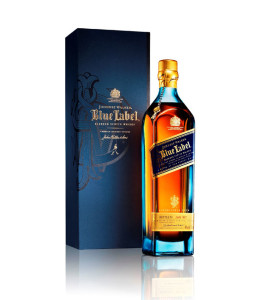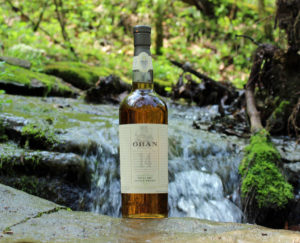By Richard Thomas
If anyone outside of the booze trade has heard of Diageo, it is probably in regards to some move the drinks mega-corporation made that was so certain to irritate consumers that one wonders how it cleared their PR experts. A case in point is last month’s news that the company was floating ideas to loosen Scotch Whiskey standards, one which was met with alarm among casual consumers, enthusiasts and the media.
The alarmists have, in this singular instance, more cause to be worried than they likely realize. Even among the most diehard and wizened enthusiasts, most study the Scotch industry for its craft, rather than paying close attention to it as a business. Diageo isn’t just a big drinks company; it’s the colossus of Scotch Whisky.
Backstory
British drinks giant Diageo came into being through a merger of Grand Metropolitan and Guinness in 1997. At that time they were a holding company for brands in several industries, a not unfamiliar model for big conglomerates in the drinks business in the late 20th Century. In 2000 they got out of the food business altogether, selling brands like Pillsbury and Burger King, to focus exclusively on drinks. In recent years they have narrowed down even more, selling their stakes in the wine business and expanding into tequila.
Nowadays, Diageo owns Guinness, Harp and other Irish beer brands; Smirnoff and other vodka brands; Captain Morgan and other rum brands; Gordon’s, Tanqueray and a couple of other gin brands; Don Julio tequila; Bailey’s; and interests in raki, schnapps, cachaca and other spirits.
In terms of world whiskey, they own Bulleit, Crown Royal and George Dickel, as well as the sourced Orphan Barrel and I.W. Harper lines. All of that put together would make them a major player in the world drinks business, but what makes them one of the true goliaths of booze is their Scotch Whisky holdings.
Big By Blends
As previously mentioned, Diageo owns Johnnie Walker, which is not just the best-selling brand in Scotch Whisky, but the best-selling brand in world whisky. Yet while Walker is a big gem to be sure, it’s all that is in Diageo’s whisky treasure trove. They also other major, Top 10-selling blended whiskies: Bell’s (10th) and J&B (5th). Other blended brands owned by the company include Black & White, Black Dog, Dimple Pinch/Haig and VAT 69.
Diageo ships roughly 18.5 million cases of whisky a year through these three brands, and maintaining them means the corporation owns a huge chunk of Scotland’s distilling capacity. That infrastructure includes the distilleries behind several highly esteemed single malt brands: Caol Ila, Cragganmore, Dalwhinnie, Oban, Lagavulin and Talisker, and many more besides.
Putting all that together gives one an idea of the Bigfoot-sized impression Diageo has inside the Scotch Whisky industry. Johnnie Walker alone accounts for 1/5 of all Scotch sales by volume. Adding the rest of the portfolio in raises the company’s aggregate market share by volume to 36%. The market shares of the next three largest companies in the Scotch business—Pernod Ricard (Chivas Regal; Ballentine’s; Glenlivet), William & Sons (Grant’s; Glenfiddich) and Bacardi (Dewar’s)—fall just a little short of matching Diageo.
The only other world whiskey industry of comparable size to Scotch is American Whiskey (i.e. Bourbon). Jack Daniel’s, the only real peer competitor to Johnnie Walker, ships approximately 12 million cases a year. Jim Beam is next, shipping about 8 million per year, so Brown-Forman doesn’t have the same commanding lead over its next largest rival that Diageo has over Pernod Ricard.
The only company that is more dominant in a whiskey sector is Irish Distillers (owned by Pernod Ricard), makers of Jameson and Powers. Irish Distillers commands 84% of the Irish Whiskey market . But Irish Whiskey is a much smaller industry than either Scotch or American Whiskey, a fact best demonstrated that Irish Distillers owns more than 4/5s of the market with Jameson shipping about 6.5 million cases per year.
Circling back to Diageo’s interest in loosening up Scotch Whisky regulations as administered by the Scotch Whisky Association (SWA), it’s weight in the industry matters. The SWA is a trade association, not a government agency, so it is essentially run by the larger companies in the Scotch business. If you look at the current members of the governing Council, Diageo has three seats. William Grant & Sons, a much smaller company, also has three, while Chivas Brothers has two, so market share obviously doesn’t translate directly into votes on the SWA Council.
Even so, it’s inconceivable that a company as big as Diageo would not have a major say in setting the priorities of the SWA. If you are a Scotch enthusiast, if you pay attention to the business news for any one company, make that company Diageo.








